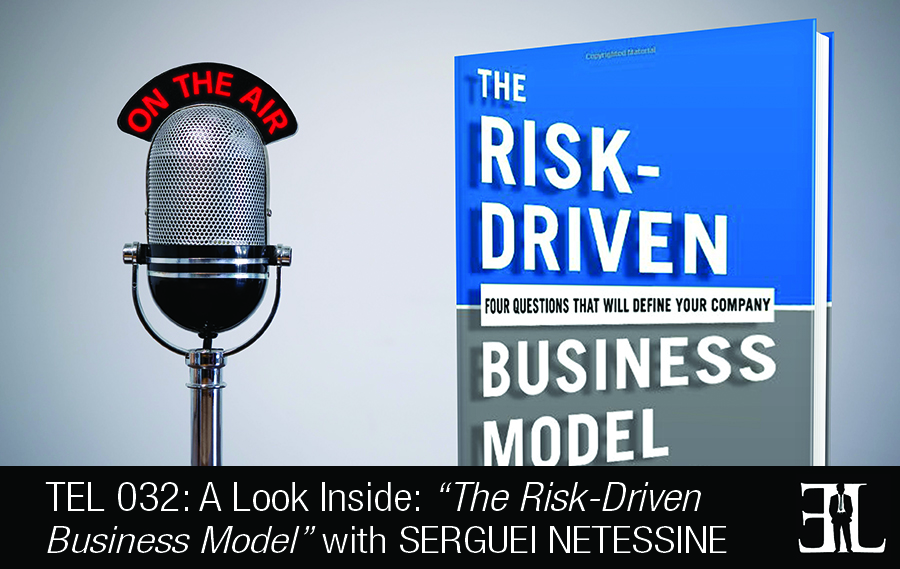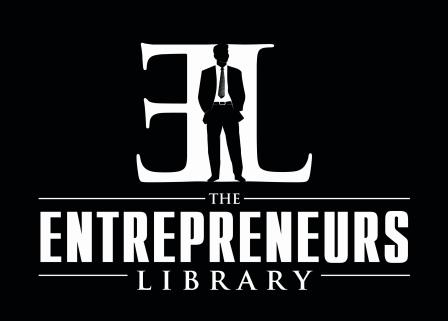
A Preview of The Risk Driven Business Model with Serguei Netessine

A summary of things you should know about The Risk-Driven Business Model according to Serguei Netessine
Introduction
In this episode Serguei Netessine shares his book The Risk-Driven Business Model with four questions that will define your company. This book is perfect for the entrepreneur or small business owner who is seeking advice and innovation on creating a new business model. The goal Netessine sets with The Risk-Driven Business Model is create a road-map for rather than simply describing business models that already exist.
The Book’s Unique Quality
Our book is on the topic of business model innovation which is a less traditional topic of innovation. Our book is different because we were aiming to create a roadmap for someone to create new business models rather than simply describing new business models that are already out there.
The Best Way To Engage
I hope that the book is interesting enough that once you start reading it, you won’t want to stop.
The Reader’s Takeaway
We believe that one of Steve Jobs’ greatest innovations was not necessarily an iPhone or iPad, it was actually a singular business model of the iTunes store. And the reason is that the business model of iTunes store actually makes all of the other innovations of Apple work.
A Deep Dive Into The Book
In the introduction of the book we talk about the fact that business model innovation is often an overlooked way to innovate. A lot of value can be created through business model innovation and it’s really a very attractive way to innovate.
In the second chapter we explain our approach to business model innovation and it’s very different from inventing new products and technologies. Typically new product and technologies start with identifying some kind of a market meet. Business model innovation is different in that there is already a need and a product which address that need. What you need to do is find inefficiencies in the existing market. And we talk about how the business model can go about identifying those inefficiencies and fixing them.
The rest of the book outlines our four different approaches, what we call our four W’s which can be used to invent new business models. The first W is our WHAT innovation. WHAT innovation is essentially an innovation about changing the kind of decisions that the company makes within its business model. The next W we talk about the WHEN innovation. The WHEN innovations are all about changing the timing of your decisions and you can do this by moving you decisions around relative to when you obtain information to make those decisions. After that we talk about the WHO innovation which changes who makes decisions in a business model. In the next chapter we talk about the WHY innovation where in the business model you can change why people make the decision. So these are a key four chapters which talk about four different approaches to business model innovation.
After this we go into an action chapter that discusses how TerraPass went about innovating its business model. This chapter describes how ideas for TerraPass were generated, how they were selected and how the company was developed. It’s an illustrated chapter talking about the details of the innovation process.
We conclude with The Call for Action which we say that the time has come to really change the discipline of business model innovation to make it into a systematic process that is governed by certain rules. We have a lot of examples of established companies changing their business models. We try to demonstrative in the book that the discipline of business model innovation has a very wide applicability and very often business model innovation works well in situations when other types of innovations don’t work very well.
Notable Quotes From The Book
“We shouldn’t forget about the power of business model which very often offers a much more sustainable innovation than innovations from new products of technologies.” – Serguei Netessine
The Credibility/Inspiration Of The Author
I was born in Russia where I did most of my studies and moved to the United States to earn my PHD in Business. My first job was at The Wharton School of the University of Pennsylvania where I worked for about ten years. Now I work with companies and startups on multiple continents.
While reading multiple books I noticed they focused on the wrong side of innovation so I decided to write a book unlike any others.
Other Books Recommended By The Author
The Lean Startup by Eric Ries
More Information About This Book and The Author
Buy The Risk-Driven Business Model by Serguei Netessine on Amazon today
Visit DefineYourCompany.com to learn more about Serguei and his book
Follow Serguei Netessine on Twitter and Facebook
More Information About This Episode
Download the full transcript here
Listen on iTunes, Stitcher , and SoundCloud
Related books: The Innovator’s Method: Bringing the Lean Start-up into Your Organization by Nathan Furr | Scrum: The Art of Doing Twice the Work in Half the Time by Jeff Sutherland | The Small Business Life Cycle by Charlie Gilkey
Relevant advice and tips: 5 Important Things That Every Entrepreneur Needs To Know About Starting a New Business
What did you like and not like about this episode? Fill out this one minute survey here.
 The Entrepreneurs Library
The Entrepreneurs Library






